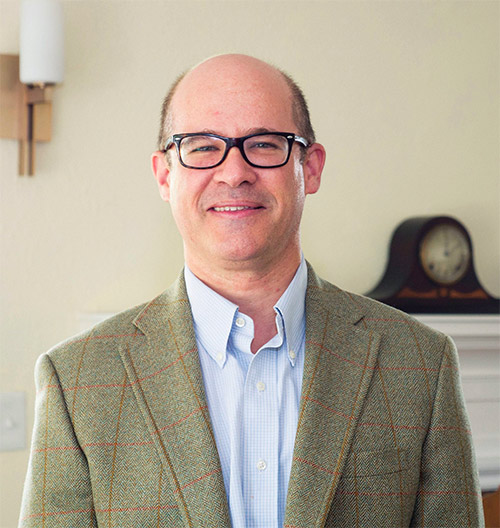By Gwyneth K. Shaw

Berkeley Law Professor Orin Kerr — one of the nation’s most prominent scholars of computer crime, criminal procedure, and criminal law — has been named the William G. Simon Professor of Law.
Kerr, who joined the school’s faculty in 2019, was voted the fifth most-influential law professor in the country and ranked the second most-cited legal academic born after 1970. An early adopter of blogging as a means for legal discussion and debate, he waded into the podcast world in 2020 with “The Legal Academy,” aimed at fellow and aspiring law professors.
He’s also a well-known commentator on Twitter, boasting more than 100,000 followers. A faculty co-director of the Berkeley Center for Law & Technology, he teaches Criminal Law, Criminal Procedure, and Computer Crime Law.
“Orin Kerr is the leading scholar in criminal procedure and criminal law in the United States. It was truly a coup for Berkeley Law have him join its faculty,” Berkeley Law Dean Erwin Chemerinsky says. “His holding the prestigious William G. Simon Chair is a wonderful, well deserved recognition.”
Kerr assumes the chair from Berkeley Law Professor Franklin Zimring, a titan in the criminology field who retired at the end of 2021. Taking the figurative seat, Kerr says, is inspiring.
“It’s a tremendous honor,” he says. “The Simon Chair has been held by the legendary Frank Zimring, one of the most influential criminal law professors ever. It’s quite something to follow in his footsteps.”
Six other faculty members were recently awarded faculty chairs, which recognize their contributions to scholarship and legal education: Abbye Atkinson, Laurel E. Fletcher, Katerina Linos, Jeffrey Selbin, Elisabeth Semel, and Steven Davidoff Solomon.
Prolific insight
Kerr joined Berkeley Law after stints at the University of Southern California Gould School of Law and George Washington Law School. He’s authored more than 70 academic articles and helped found the field of computer crime law, which studies how traditional legal doctrines must adapt to digital crime and digital evidence. His work is frequently cited in judicial opinions, all the way up to the U.S. Supreme Court.
Kerr’s most recent work includes “Decryption Originalism: The Lessons of Burr” and “Cross-Enforcement of the Fourth Amendment,” both published in the Harvard Law Review; and “The Fourth Amendment Limits of Internet Content Preservation.”
He is currently finishing a book, The Digital Fourth Amendment.
Before law school, Kerr earned undergraduate and graduate degrees in mechanical engineering from Princeton University and Stanford University. He received his J.D. from Harvard Law School and was a law clerk for Judge Leonard I. Garth of the U.S. Court of Appeals for the Third Circuit and then-Supreme Court Justice Anthony M. Kennedy.
He also served as a trial attorney in the Computer Crime and Intellectual Property Section at the U.S. Department of Justice and as a Special Assistant U.S. Attorney in the Eastern District of Virginia before entering the academic realm.
Kerr says he was drawn to Berkeley Law by the school’s leading scholars across a range of areas, including the intersection of law and technology and the criminal law field.
“It’s a great privilege to be part of such a smart and ambitious community.”